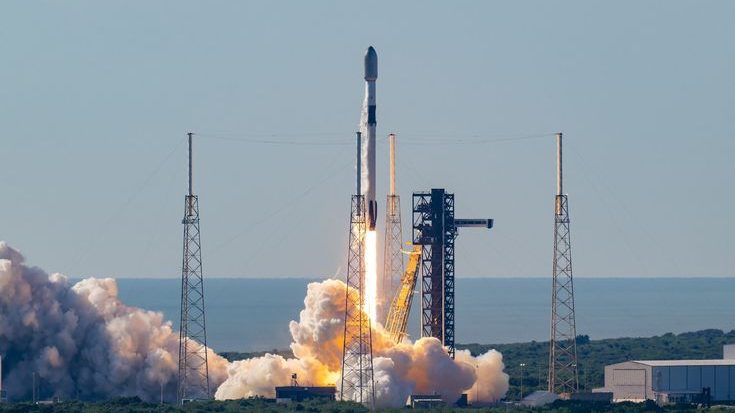India’s latest attempt to launch an Earth-observing satellite ended in failure on Saturday night, resulting in the loss of the EOS-09 spacecraft.
The Indian Space Research Organisation (ISRO) launched the EOS-09 satellite aboard its trusted Polar Satellite Launch Vehicle (PSLV) from the Satish Dhawan Space Centre. Unfortunately, the mission failed due to a problem encountered during the rocket’s third stage, approximately six minutes after liftoff.
“The PSLV is a four-stage vehicle. Up to the second stage, the performance was quite normal,” stated ISRO Chairman V. Narayanan in a post-launch televised address. “The third stage motor started perfectly, but during its operation, we noticed an anomaly, and the mission could not be accomplished. We will analyse the data and come back.”
EOS-09 was set to become the ninth mission in India’s Earth Observation Satellite (EOS) series. The satellite featured a synthetic aperture radar (SAR) payload, designed to deliver high-resolution imaging capabilities both day and night, and in all weather conditions — including cloud cover.

Indian media previously highlighted the satellite’s strategic importance, noting, “Its ability to provide round-the-clock, reliable intelligence is especially significant given ongoing security concerns along India’s borders with Pakistan and China.”
Saturday’s launch marked ISRO’s 101st overall mission and the 63rd flight for the PSLV rocket. The 146-foot-tall (44.5-meter) PSLV was launched in its “XL” configuration, equipped with six strap-on solid rocket boosters. This incident represents only the third failure in the PSLV’s 32-year operational history.